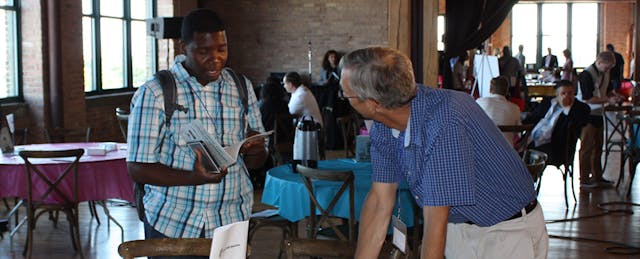When exploring the current landscape in edtech, it’s hard not to be excited. There is a proliferation of smart, scrappy entrepreneurs creating solutions to long-standing challenges in schools and classrooms. Edtech incubators and accelerators are popping up across the country to cultivate new companies, and venture capital to support them is increasing.
But for technology to have a real impact on K-12 education, the ultimate change has to take place in the classroom. While there are pockets of innovation and adoption of new technologies in school districts throughout the country, both the level of awareness among educators and the pace of access and adoption in schools are still at a very early stage.
Take Chicago, for example. Eileen Murphy, a long-time Chicago public school teacher and founder of digital literacy organization ThinkCERCA, is trying to foster educator awareness and excitement around technology in her hometown.
Last year, Murphy started the Chicago Ed Tech Startup Collaborative, a daylong event to connect local educators with leaders and entrepreneurs in the edtech sector. And at the second annual Collaborative last Thursday, August 14, over 650 educators from Chicago and surrounding areas and entrepreneurs from 37 startups gathered at the South Side’s Bridgeport Art Center to engage in panels, workshops and pitch sessions.
Benefits for Educators
According to Murphy, the event is designed to meet a need she experienced as a teacher. “When I was teaching, I didn’t know where to look for new technologies, and I had limited time do so,” Murphy said. “I didn’t even know most of the tech solutions out there existed.”
CEO of Sensible Innovation and keynote speaker Furman Brown began the day with a message that resonated with the teachers Murphy most hoped to reach. “Technology will never replace the human relationship between teacher and student,” said Brown, a successful education entrepreneur and award-winning innovator. “We are all here trying to support teachers in doing their jobs more effectively.”
The event offered a low-pressure environment for educators to learn about promising edtech solutions. Every startup had a table with a small sign, with no big displays or sophisticated audio-visuals. Educators roamed the conference space and engaged in informal conversations with companies they found intriguing.
“Having so many companies in one place gives me the chance to get a snapshot of different technology solutions and flag those that I want to explore further,” said Michelle Warden, a STEM teacher at Wadsworth Elementary School in Chicago. “There were many here that I’d never heard of, and probably wouldn’t have, if I hadn’t come to this event.”
The event went well beyond a “tradeshow,” also providing educators with practical guidance on implementing technology-enabled instruction. LEAP Innovations, a new Chicago-based research and development hub, led a session on evaluating and selecting technology solutions to meet student needs, where educators from neighborhood district schools discussed how they had integrated technology in their classrooms, demonstrating what’s possible to others at the event.
Benefits for Entrepreneurs
Entrepreneurs found the Collaborative valuable as well, taking advantage of critical feedback from the many teachers in attendance.
“Big school districts can be tough to penetrate. It’s hard to know where to start,” said Ryan Hoch, co-founder of Overgrad, a technology platform that supports high school students to and through college. “This event offered a simple, pressure-free way to engage with a lot of Chicago teachers.”
Balu Kadiyala, Founder and CEO of SchoolRush agreed. “This conference is optional for teachers, but they have chosen to spend the day here. Essentially, we get to come meet with potential users that have already been pre-qualified for their interest in technology."
Throughout the day, startups also had many opportunities to present to educators and engage in authentic dialogue on how their solutions could be improved. Both teachers and students shared ideas for how technology could transform the learning experience, including one particularly vocal elementary school student who told it to the edtech entrepreneurs straight: “All of you people in this room are geniuses. You’ve started your own companies!” he said. “Why can’t you solve the problem of boredom?”
For both the educators and edtech entrepreneurs in attendance, the Collaborative proved to be an important step in scaling and strengthening the partnership between these two communities--a partnership necessary for the future success of students in our nation’s third largest public school district.


